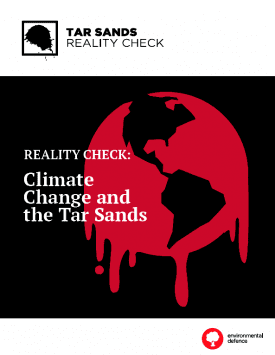

About The Report:
Big Oil is spending millions of dollars on ads, desperately trying to convince Canadians that the tar sands are not harming our air. But don’t believe the slick PR spin. A new report, Reality Check: Air Pollution and the Tar Sands, sets the record straight and shows Big Oil is failing to take care of the air we breathe.
The report states that like many of the environmental challenges facing the tar sands, air pollution from the tar sands is not being managed well enough to protect our communities, our environment and our health. Air pollution from the tar sands is already reaching Alberta’s existing limits on pollution, limits which are lower than those set by the World Health Organization and the U.S. Environmental Protection Agency.
The report references the latest research such as a study that found increased incidences of rare cancers associated with these dangerously high levels of air pollution, including leukemia and non-Hodgkin’s lymphoma in the region around the tar sands. And yet in Alberta tar sands companies frequently break existing environmental rules, and aren’t penalized when they break these rules. This isn’t what we’d call responsible resource management.
The report describes that if tar sands production triples as industry wants, it would mean a 230 per cent increase in nitrogen oxides pollution, a 160 per cent increase in sulphur dioxide emissions and a 190 per cent increase in particulate matter – each of these can damage both human and environmental health.
This is the second in a series of six reports that will counter Big Oil’s claims that the tar sands impacts are under control. The reports offer a reality check about the failure of the oil and gas industry to live up to its promises to prevent irreversible damage to our air, our water, our communities and our wildlife. It’s time to look past Big Oil’s slick PR, and focus on the truth about the tar sands. It’s time to stand up and demand the clean, safe and renewable energy future we deserve.
(Adobe Reader is required to read this pdf report. Please ensure you have the latest version.)



